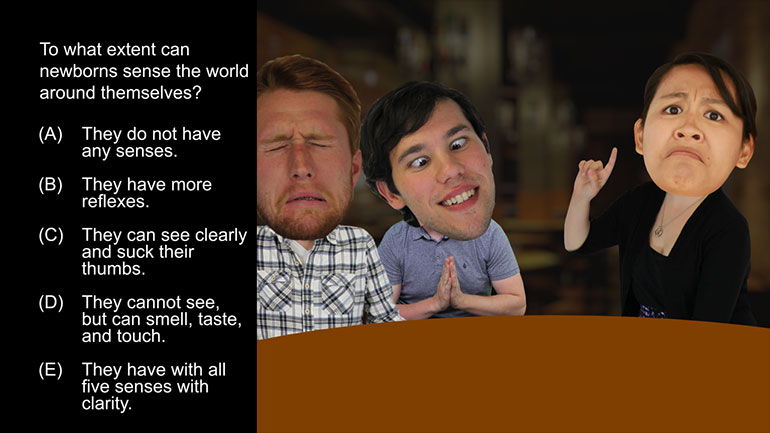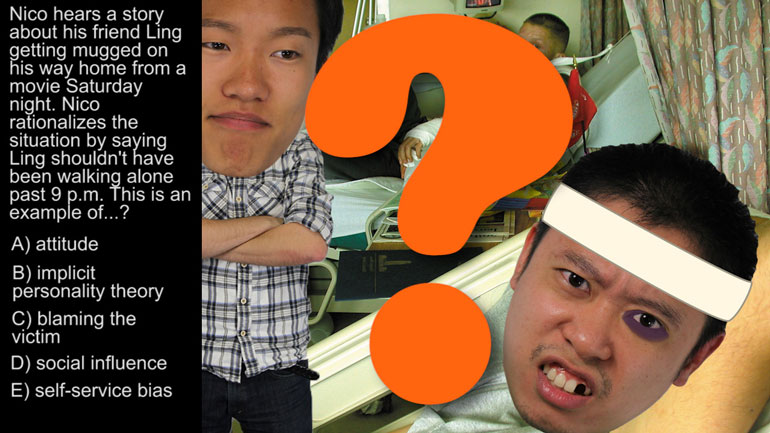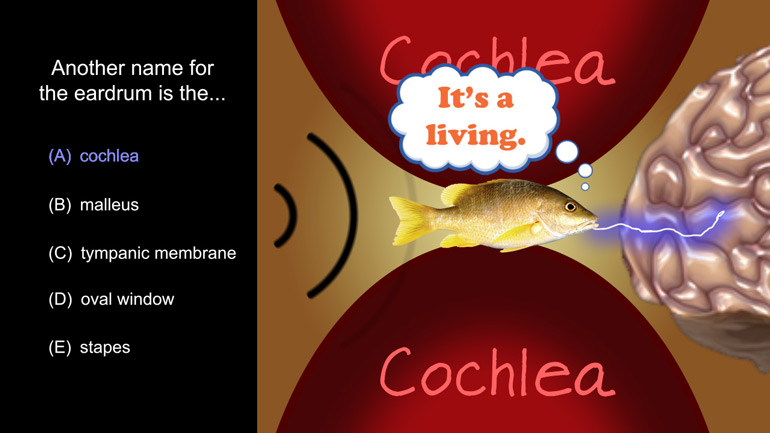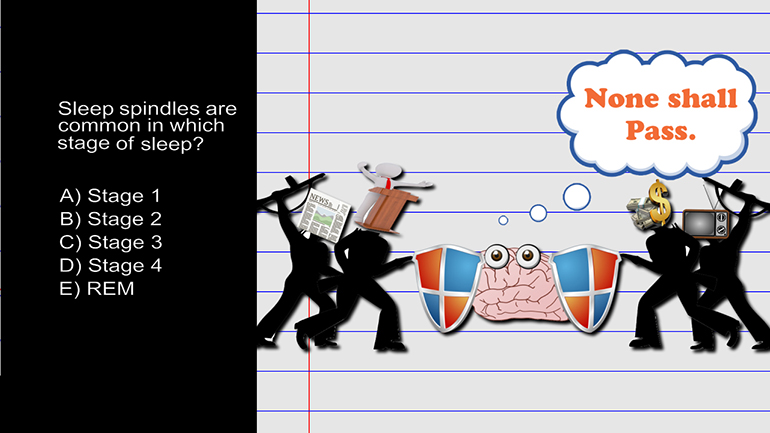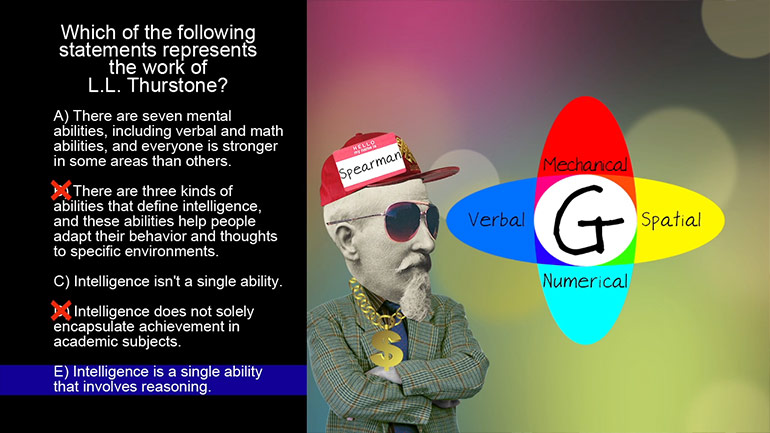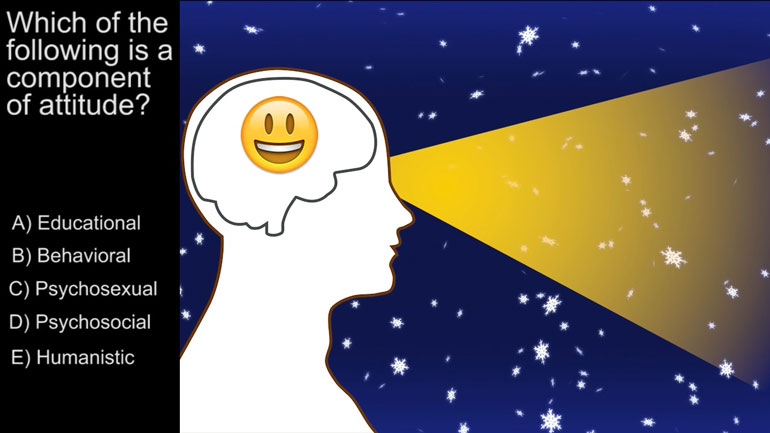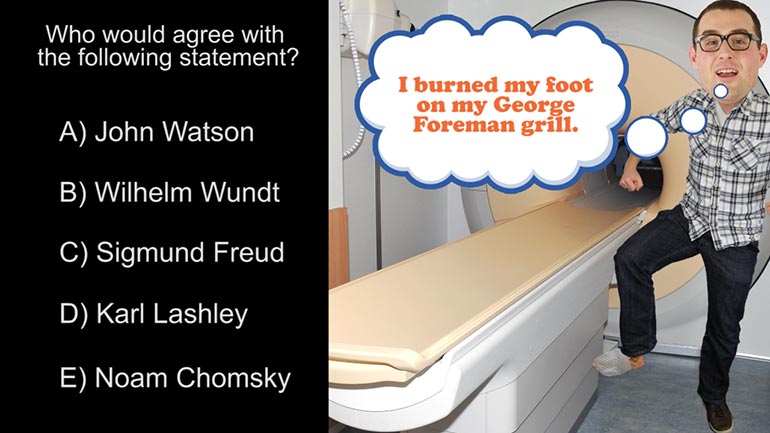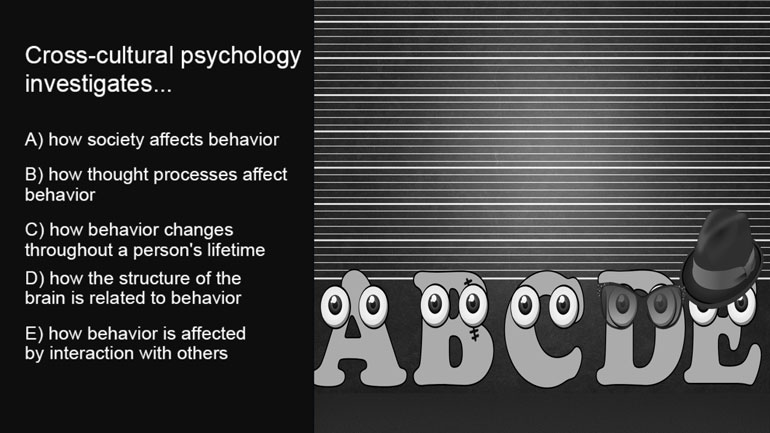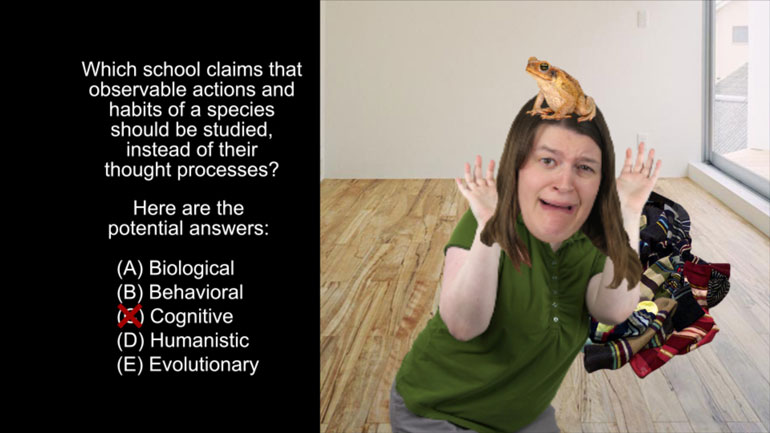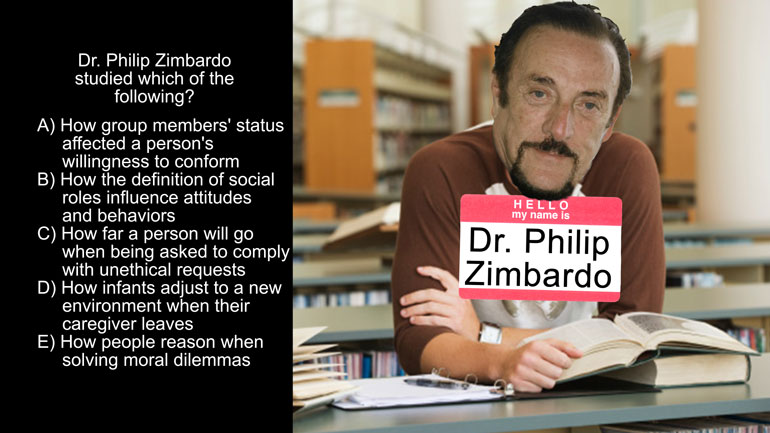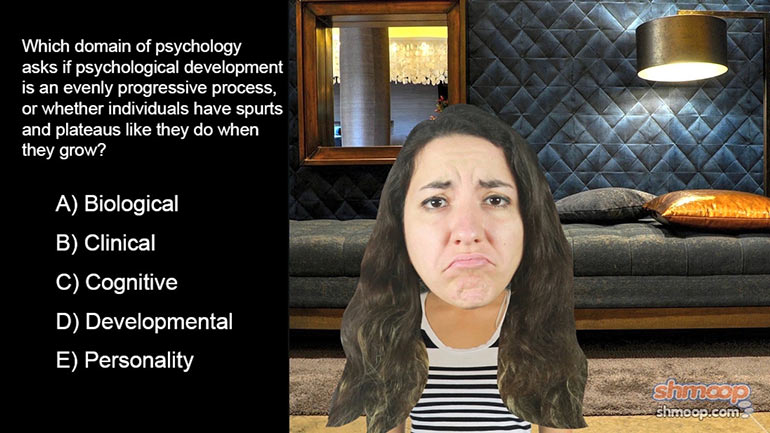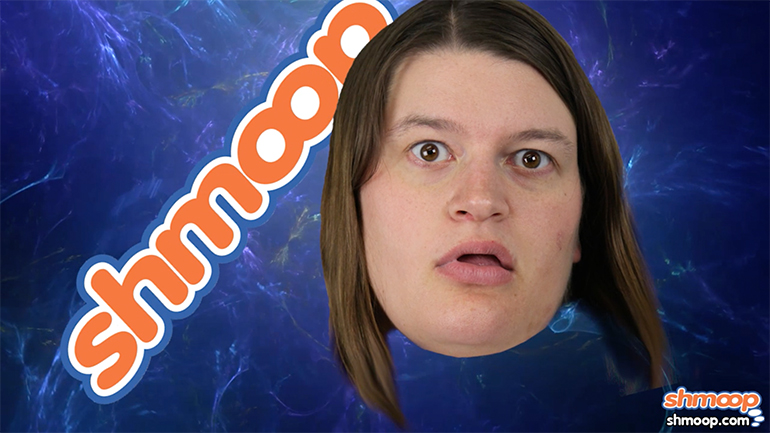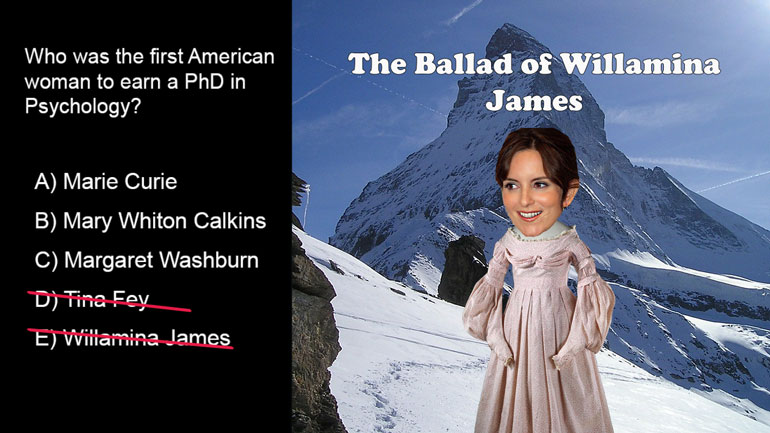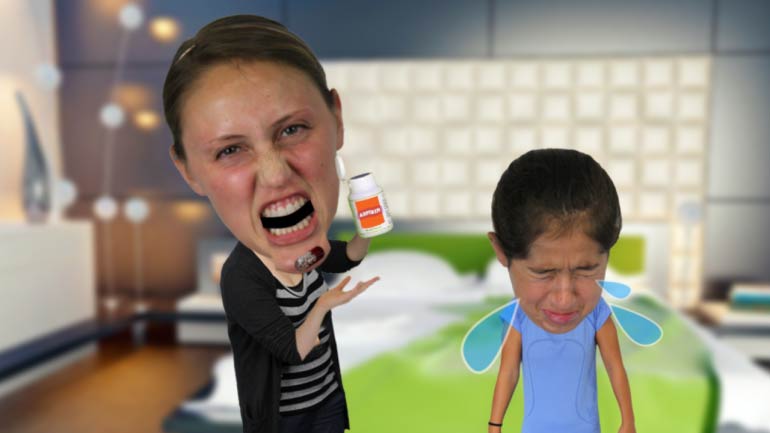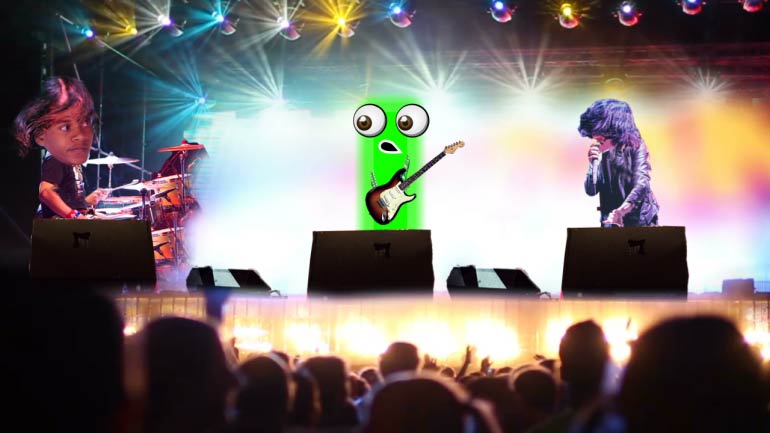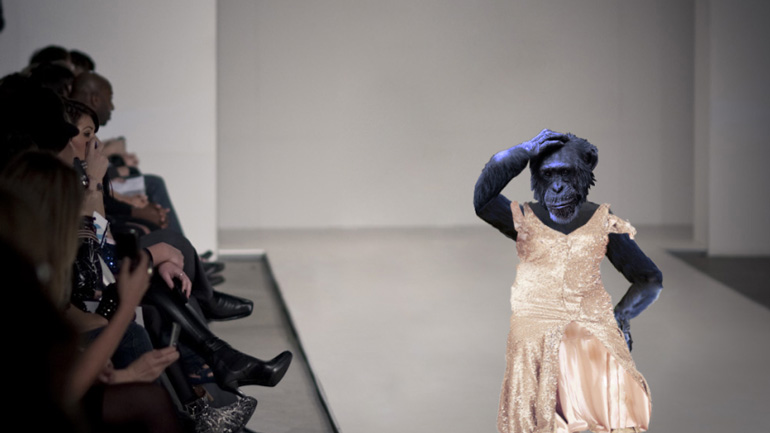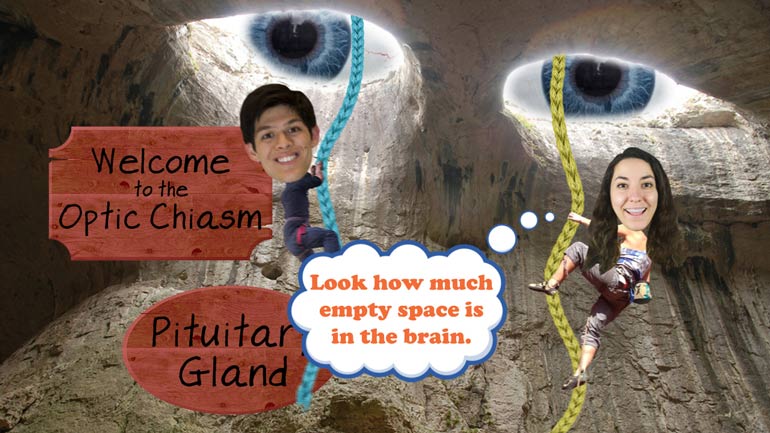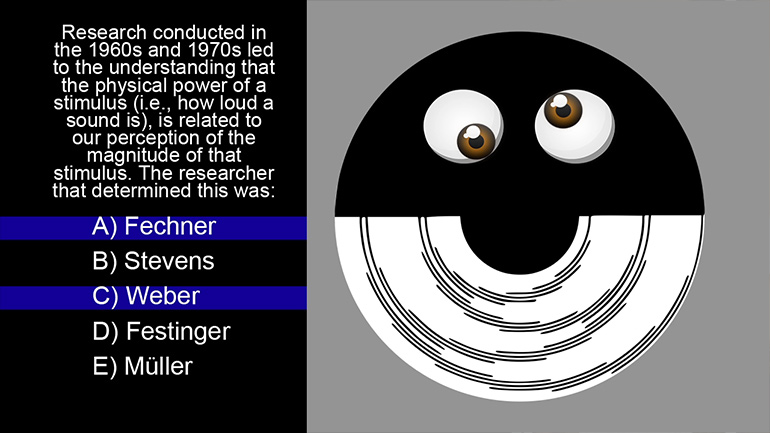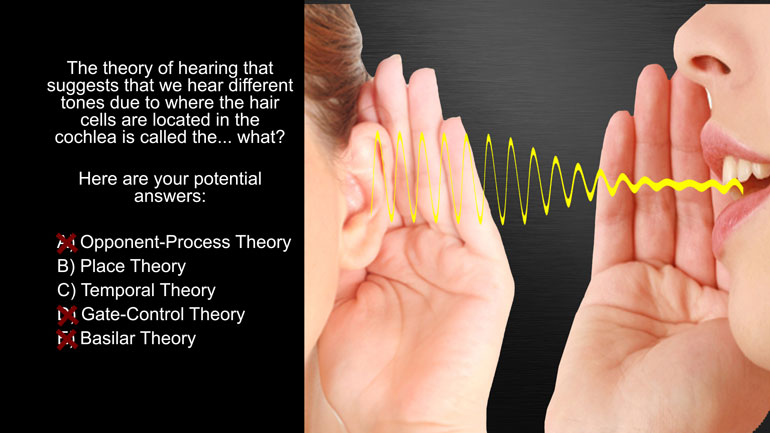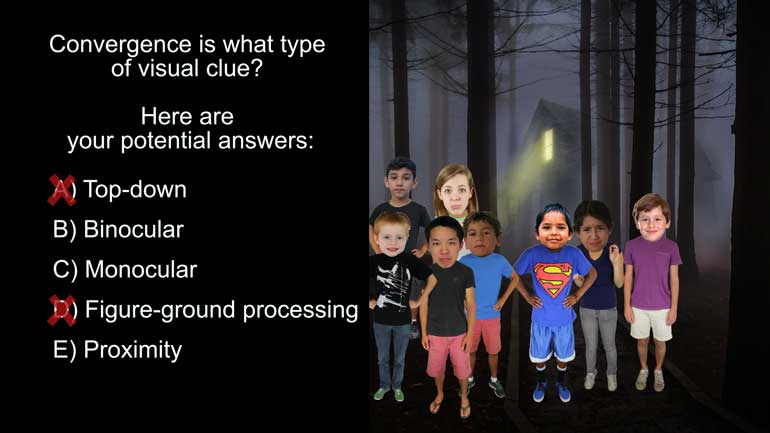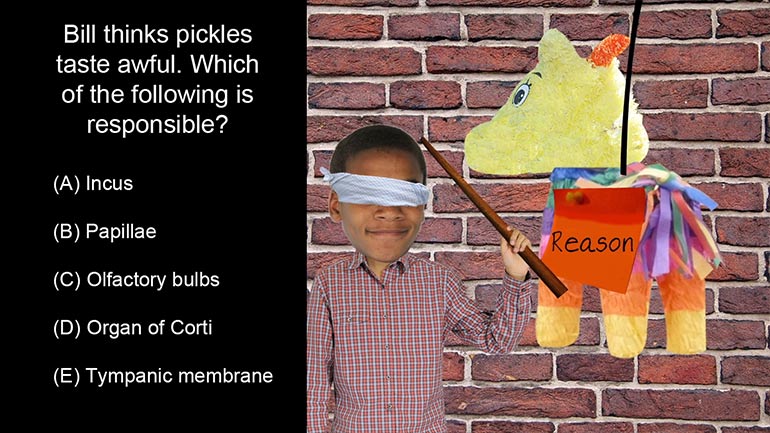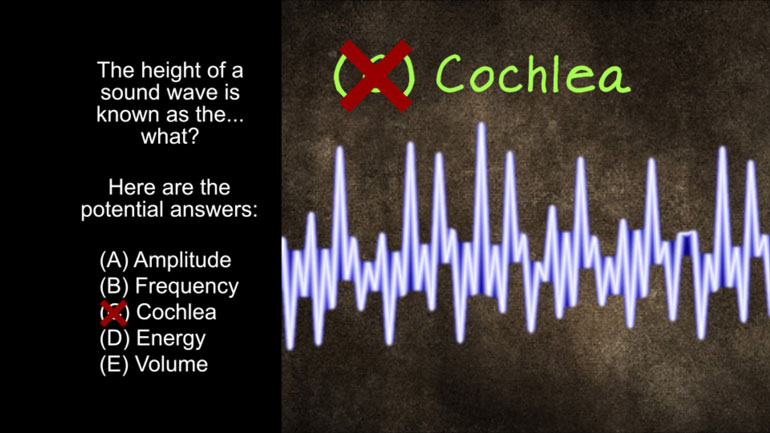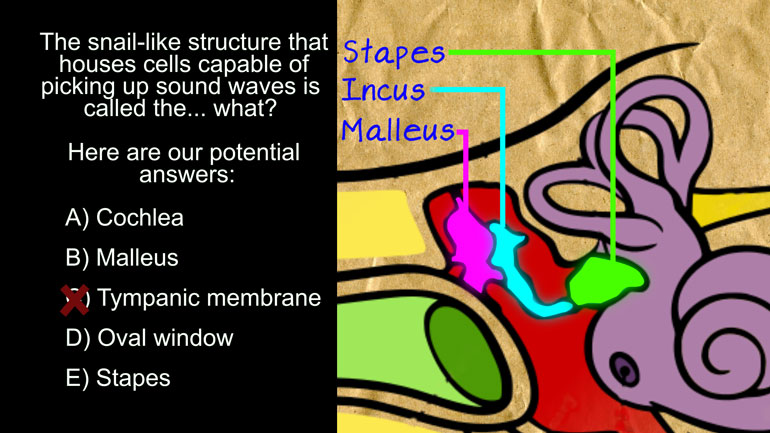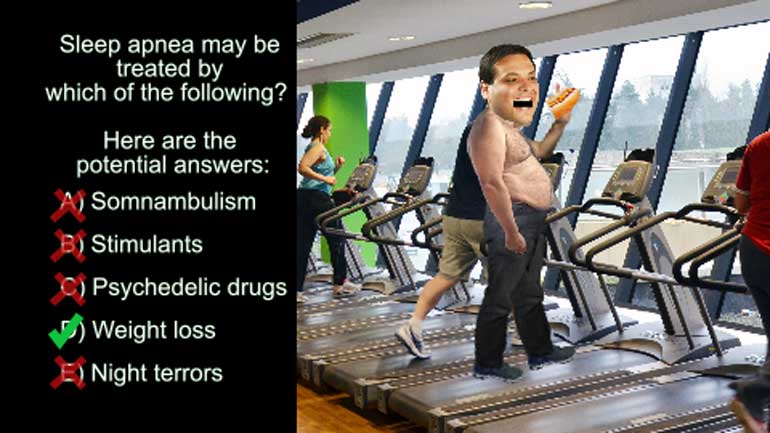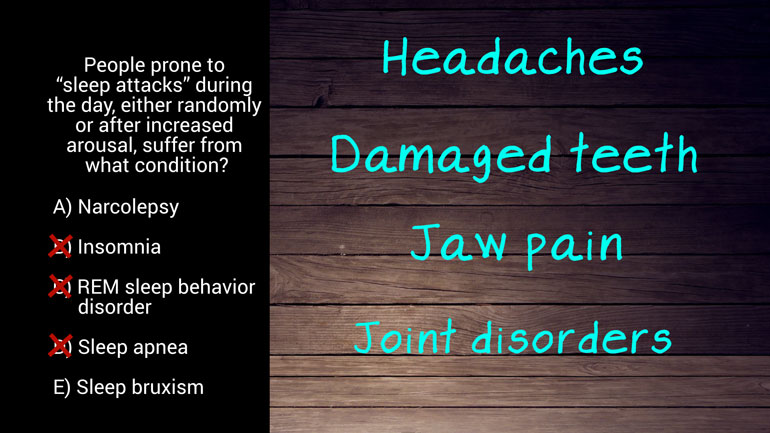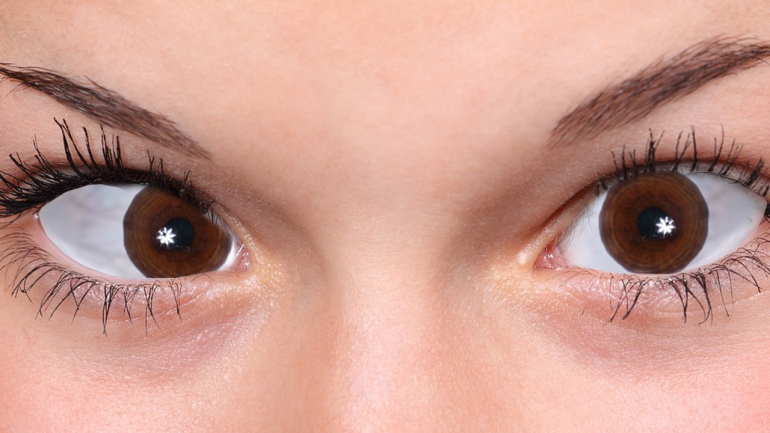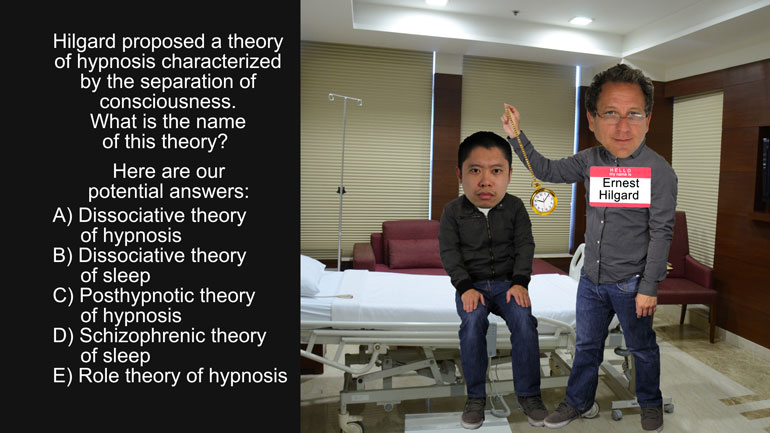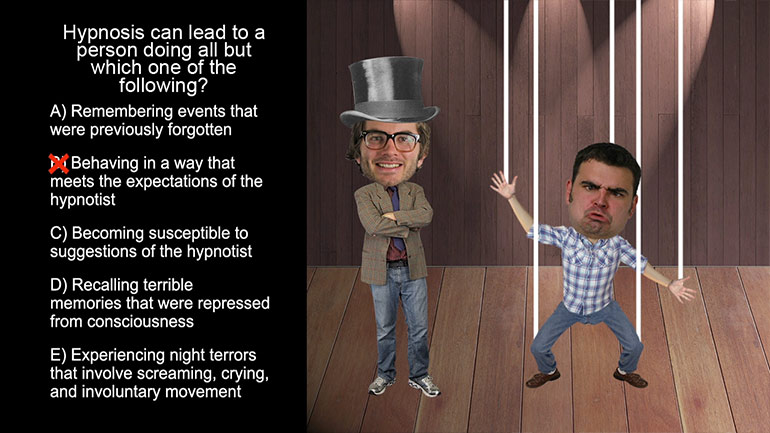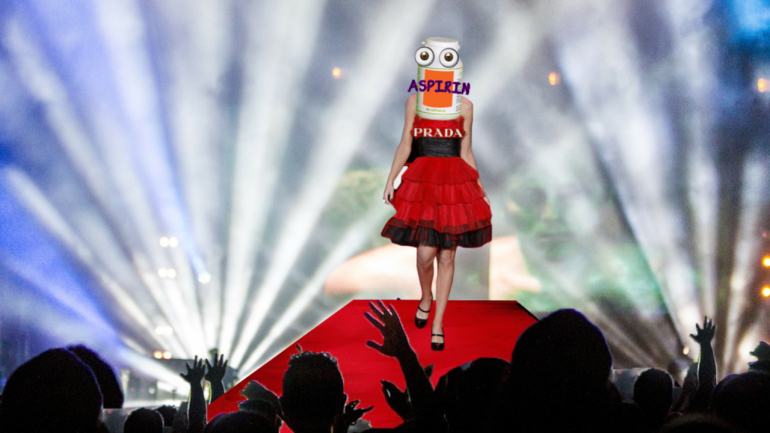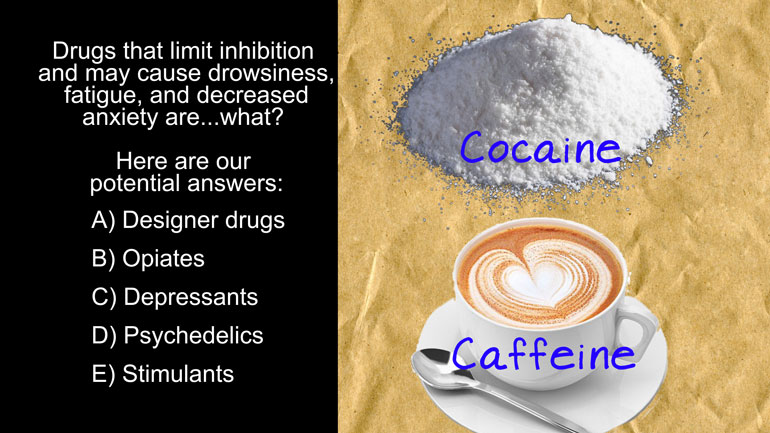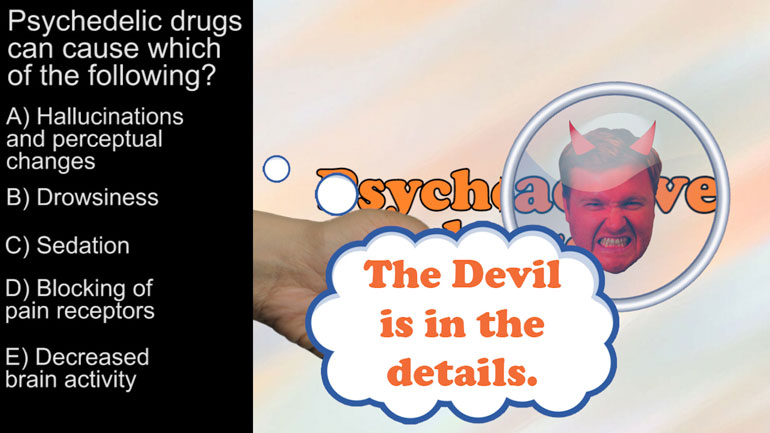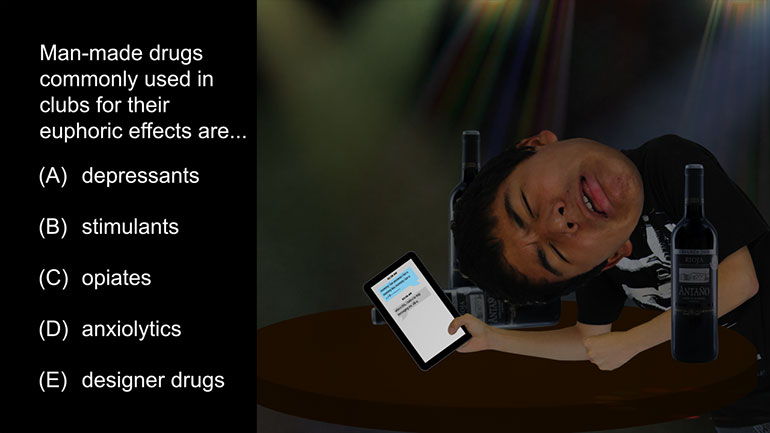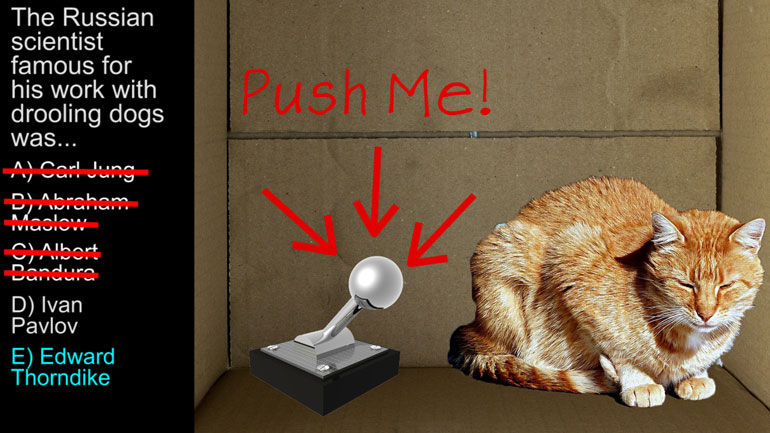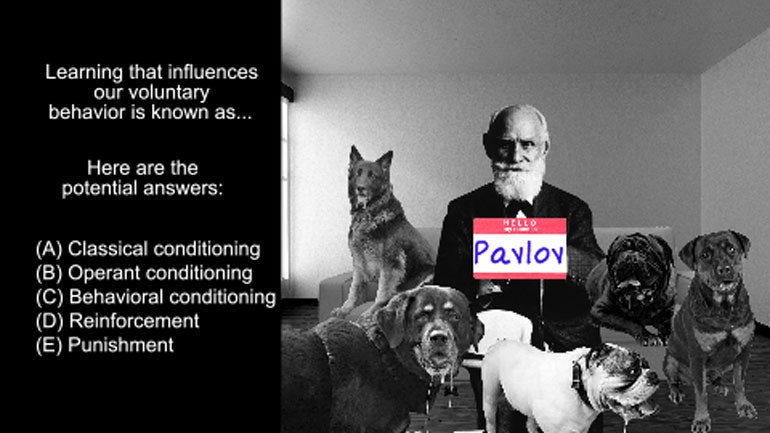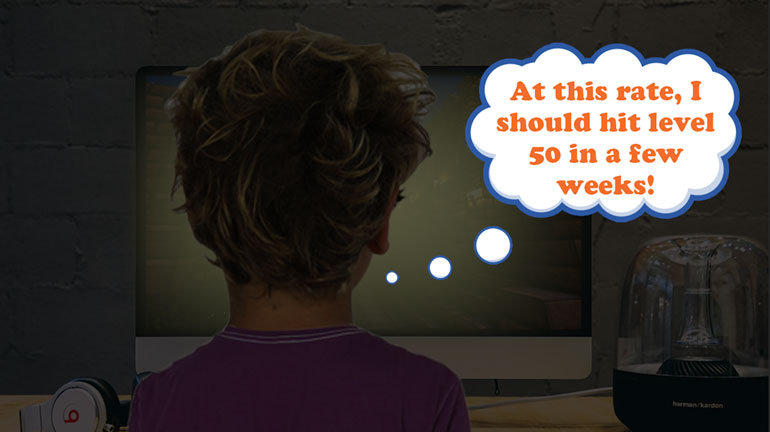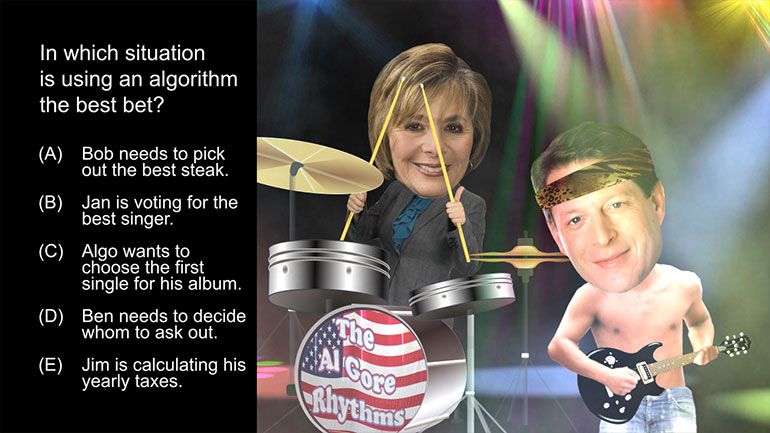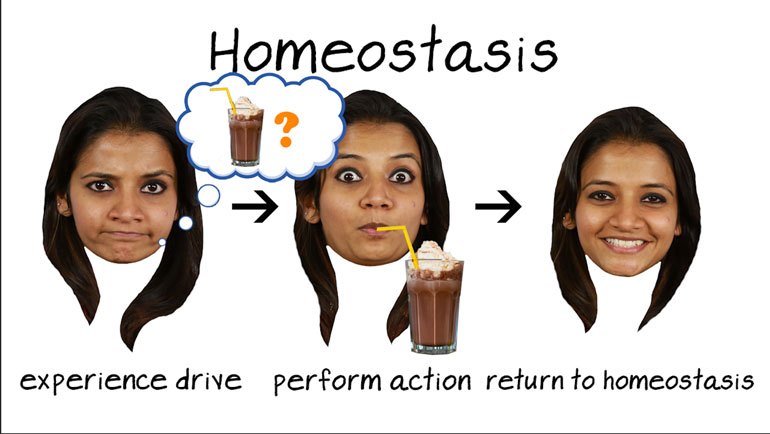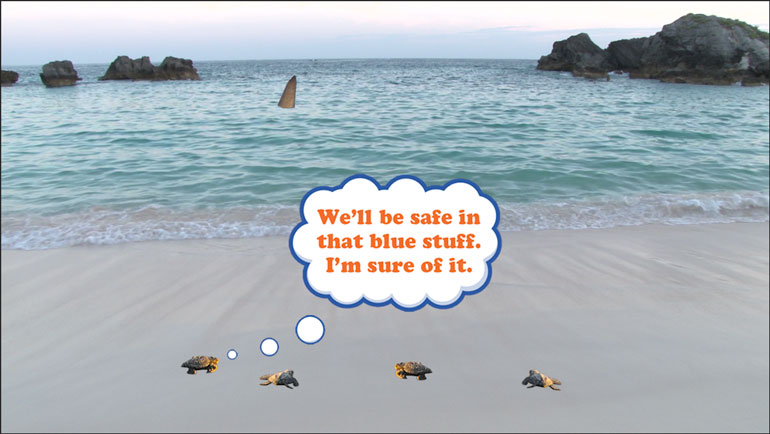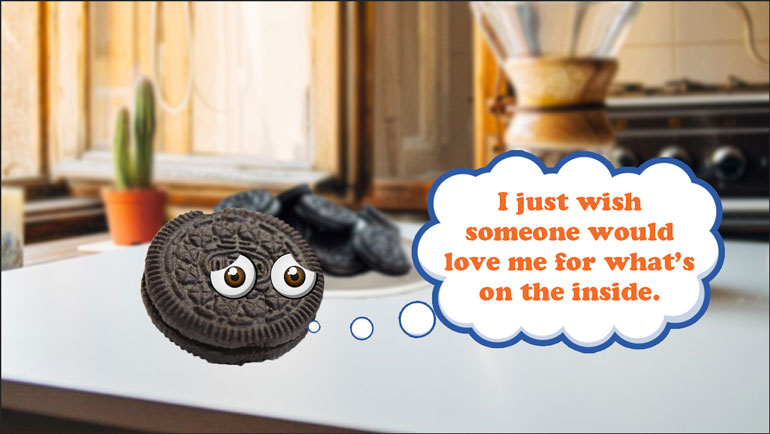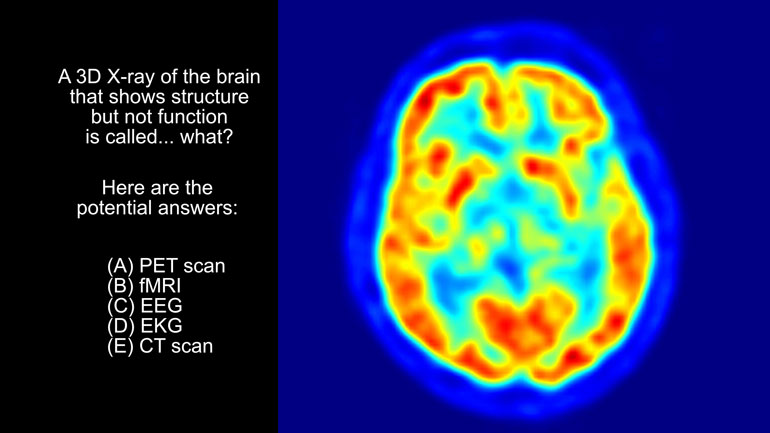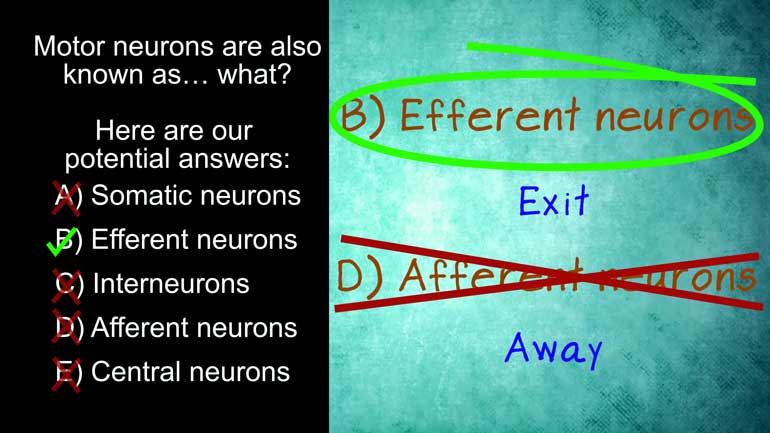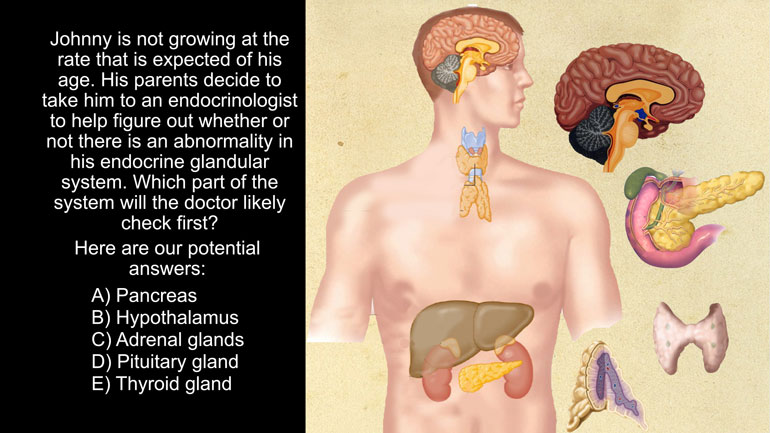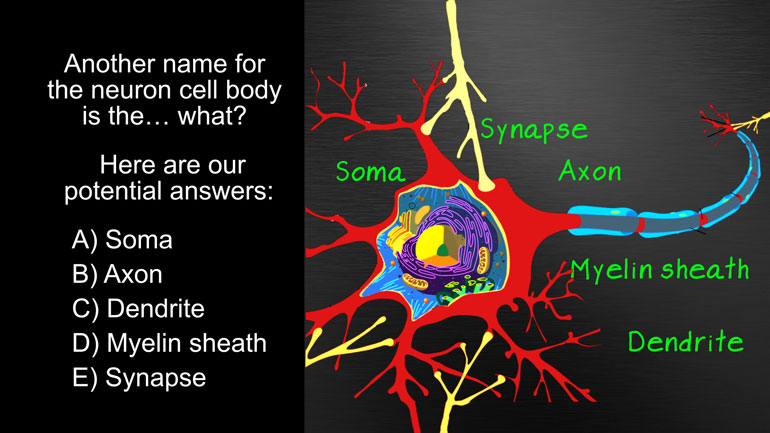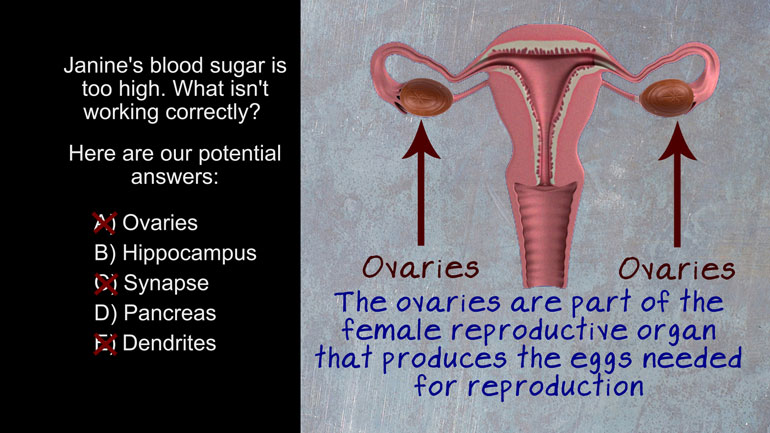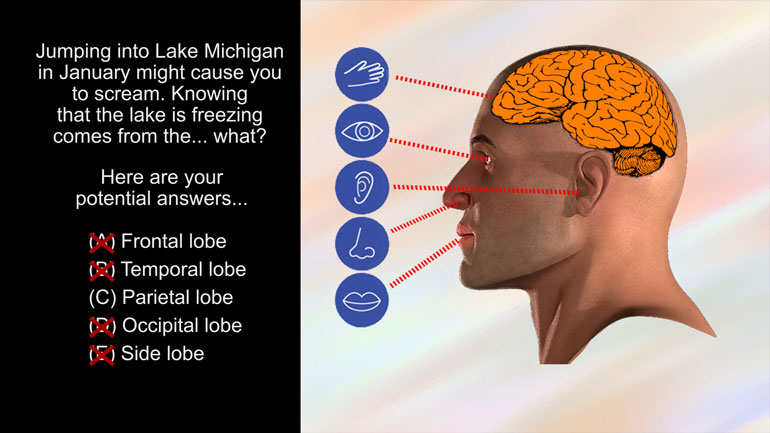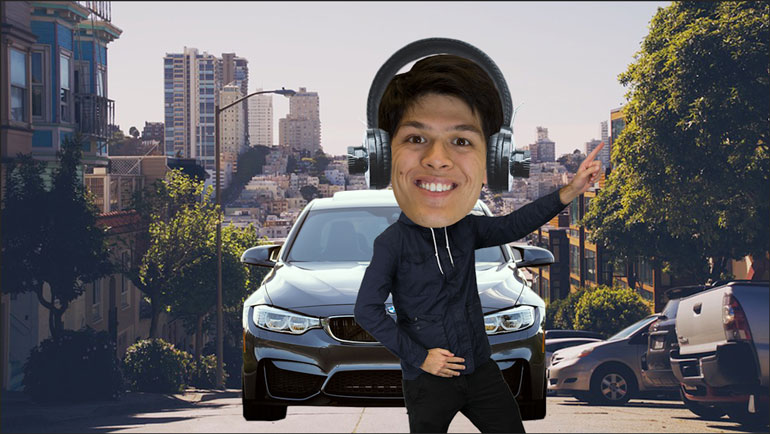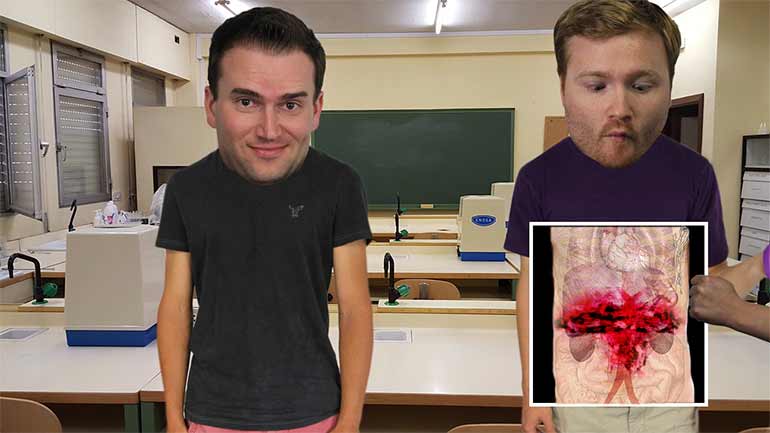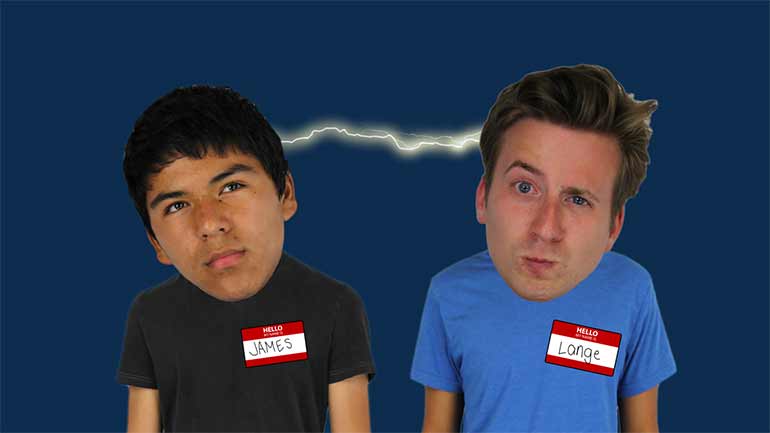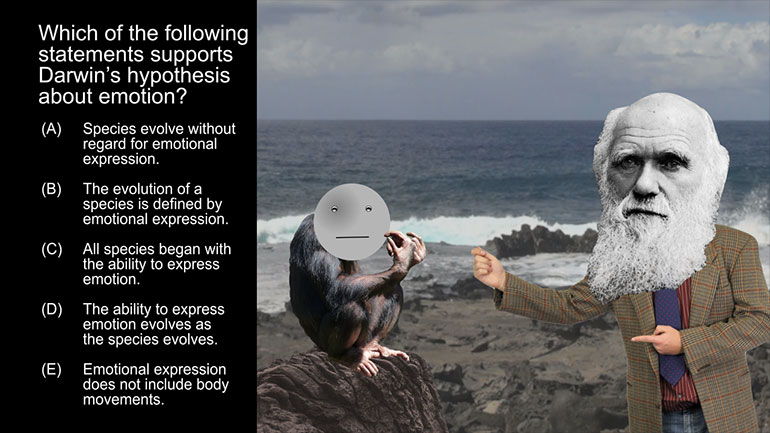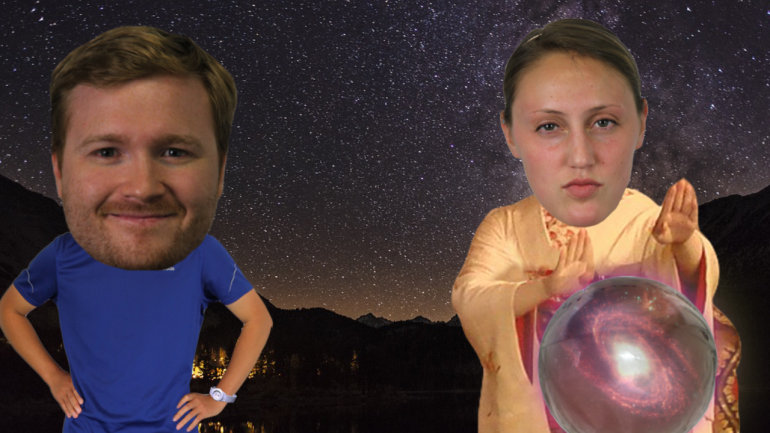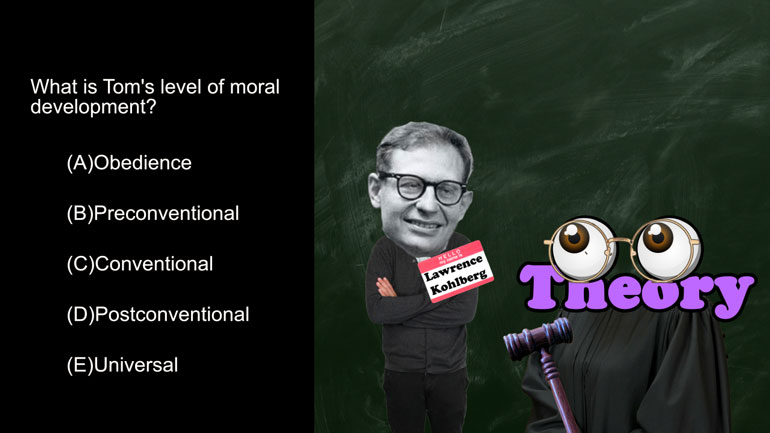ShmoopTube
Where Monty Python meets your 10th grade teacher.
Search Thousands of Shmoop Videos
AP Psychology Videos 135 videos
AP Psychology 2.3 Testing and Individual Differences. Which factor below needs to be considered in the administration and evaluation of the attenti...
AP Psychology 2.4 Testing and Individual Differences. Which of these is an example of studies used in the nature vs. nurture debate of intelligence?
AP Psychology 1.2 Developmental Psychology. How would you respond to someone stating that babies are born without any real sense of the world aroun...
AP Psychology 3.5 States of Consciousness 19 Views
Share It!
Description:
AP Psychology 3.5 States of Consciousness. Drugs that are man-made and commonly used in clubs for their long-lasting euphoric effects are what?
Transcript
- 00:04
Here's your shmoop du jour brought to you by designer drugs we hear
- 00:08
Chanel is releasing her new tylenol any day now right well here's question drugs [Chanel holding a large capsule]
- 00:13
that are man-made and commonly used in clubs for their long-lasting euphoric
- 00:17
effects are what? and here are potential answers.... All right, well we
- 00:24
wouldn't blame you if you gravitated towards A at first, after all when most [Wine glass filling with wine]
Full Transcript
- 00:29
people think of depressants they think of alcohol which is more or less a
- 00:32
reigning champ of bad decisions inappropriate text messages and [Man drunk texting his Mom in a club]
- 00:35
nightclubs everywhere however depressants like alcohol aren't exactly
- 00:39
known for their euphoric effects but instead the way in which they slow down [Brain slowing down next to a bottle of wine]
- 00:43
brain function conversely stimulants are considered to be uppers aka the exact
- 00:49
opposite of the aforementioned downers unfortunately they don't fit our answer
- 00:54
because they're not exclusively man-made caffeine and cocaine are both considered [Caffeine and cocaine on a table and a man's head shakes rapidly]
- 00:58
uppers and both come naturally from plants opiates meanwhile are drugs that
- 01:03
contain opium which produces compounds like morphine and codeine often used as
- 01:08
painkillers not really suitable for most nightclub settings... D might actually be a
- 01:14
pretty nightclub appropriate answer for some people for all the introverts that [Person stood inside a box]
- 01:18
only dance alone in their living room anxiolytics or anti-anxiety medication
- 01:23
would be a good choice but it's not quite what we're looking for so that
- 01:27
leaves us with E. Designer drugs like MDMA aka ecstasy are man-made [An MDMA tablet]
- 01:31
psychedelics that increase feelings of affection and they're commonly abused on
- 01:36
the nightclub scene. Since designer drugs are man-made the chemical structure can
- 01:40
be altered to mimic illegal recreational drugs and honed to do a variety of [Man dancing weirdly with a dog]
- 01:45
different things many of which are dangerous none of them will make you a
- 01:48
better dancer though [Person in a box dancing in a club]
Related Videos
AP Psychology 2.2 Social Psychology. Which of the following was an independent variable manipulated in Asch's research?
AP Psychology 1.1 Personality. According to Freud, these three parts of personality are constantly in conflict.
AP Psychology 1.1 Sensation and Perception. The process by which the brain can turn sensory stimuli from the outside world into electrical signals...
AP Psychology 1.1 Social Psychology. Which of the following best describes social psychology?
AP Psychology 1.1 States of Consciousness. Who conducted research on REM sleep deprivations?


